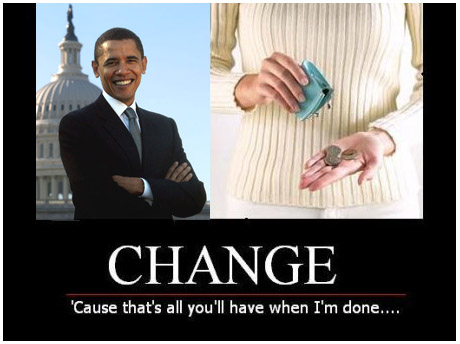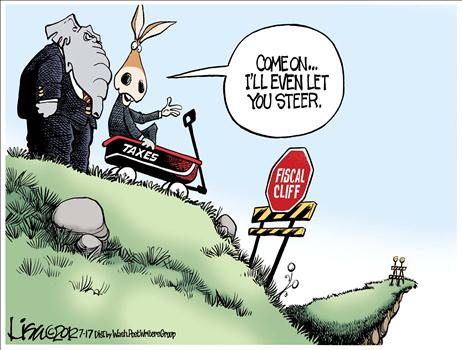Dr. Carson's good medicine
by David Limbaugh
February 12, 2013
President Obama must have been stunned at the “audacity” of Dr. Benjamin Carson in challenging his core assumptions right to his face in front of thousands of people at the National Prayer Breakfast.
Obama is not used to being challenged, especially in public, even if indirectly and without being specifically named. From the look on his face, it was obvious Obama was none too pleased with Carson’s message or with his “presumptuousness” in presenting it in that forum, while he had to sit still and — remain silent.
I think we can best understand Carson’s message in light of his opening statements, which laid the foundation for the thematic body of this speech.
He began citing scriptural passages that he said would put his upcoming remarks into context. Three of the passages were wisdom sayings from the book of Proverbs, admonishing that the godless destroy their neighbor with their mouths, that a man who lacks judgment derides his neighbor and that a generous man will prosper.
The final passage was God’s promise in 2 Chronicles 7:14 that if his people will humble themselves and pray and seek his face and turn from their wicked ways, he will hear them, forgive their sins and heal their land.
Carson also decried the chilling effect of political correctness that makes people afraid to express certain opinions on important issues, lest they incur the wrath of society’s thought and speech police — those who presume to be the guardians of all moral and acceptable opinions. He then proceeded to boldly articulate a number of ideas that clearly fall in this category of disfavored speech.
Specifically, Carson offered a ringing endorsement of America’s founding principles and its unique constitutional liberties. He decried the moral decay in our society and our government’s grotesque fiscal irresponsibility.
He took aim on our ever-expanding welfare state, not only by championing hard work, self-reliance and personal responsibility but also in invoking his own personal experience as an example.
He related how his mother worked multiple jobs to provide for him and his brother and imparted critically important values to them. She made them read and improve themselves and absolutely refused to let them make excuses and claim victimhood for their plight.
Carson, I believe, was illustrating that we have a moral problem in this nation and that the instilling of good values begins in the home and is neither the responsibility nor the prerogative of a caretaker government.
He denounced the practice — refined to an art form by President Obama — of politicians employing class warfare to deride the wealthy with accusations that they don’t contribute enough while treating the less fortunate as helpless and expecting no contribution from them at all. This, I think, is where he was dovetailing the scriptural texts warning against deriding one’s neighbor. He was saying, in effect, that political demagogues who pit people against one another on the basis of income and wealth harm society, including the very people they pretend to help.
In a television interview, Carson expanded on some of these thoughts, explaining that the Founding Fathers were afraid of an out-of-control government that would “get to the point where it couldn’t subsist without taking everything from the people.” Next, he linked, though not expressly, the scriptural passage on generosity in challenging today’s conventional wisdom that the wealthy are necessarily greedy. He pointed to the remarkable generosity of some of America’s historically wealthiest individuals. America, he said, “has always been a very generous nation. Look at all the foundations that have been created for the purpose of taking care of people.”
He also expounded on his comments on political correctness, apparently criticizing the president’s selective assault on religious liberty. He said, “If the president would exercise anywhere near the sensitivity about religious freedom in this country as he does about Islam and offending them, we wouldn’t even have these kinds of problems.”
There is also no question in my mind that in citing the passage from 2 Chronicles, Carson was expressing his view that America has strayed from its godly roots and replaced God’s absolute moral standards with those that seem right to a man but are wholly destructive of our moral fabric. We must turn back to God, reject this man-made ethic grounded in covetousness, envy and greed, and recommit ourselves to godly values and right living.
In his speech, Carson did not criticize President Obama by name, but he roundly condemned his philosophy of and approach to governance. He did so with abundant forcefulness but equally strong respectfulness.
It was an admirable display of forthrightness and courage and a virtual seminar in how President Obama’s political opponents should boldly, directly and publicly dispute his wrongheaded message and block his destructive agenda.
Read more: http://goo.gl/bQq9B

AMERICAN THINKER
The Resilient Conservative Majority
by Bruce Walker
February 12, 2013
Gallup had a poll recently published a poll which shows that at the end of 2012, self-identified conservatives still outnumbered liberals in every state of the nation except for two -- Rhode Island has fewer conservatives (27.8%) than liberals (28.3% liberal), as does Massachusetts (28.3% to 30.5%). Gallup curiously does not play up the ideological gap. Instead, the February 1, 2013 article title given by Gallup was "Alabama, North Dakota, Wyoming Most Conservative States. Americans slightly less conservative, slightly more liberal[.]"
This apparent interest in hiding the conservative advantage in America is pervasive; the Gallup Polls invariably have titles to news stories which would cause no one to get curious. The Gallup Poll data twelve months earlier showed the same dramatic conservative advantage. So did the February 2011 Gallup Poll, entitled "Mississppi rates as Most Conservative US State." The August 2010 Gallup Poll tells us that "Wyoming, Mississippi, Utah rank as Most Conservative States." The February 2010 Gallup Poll reads, "Ideology: Three Deep South States Most Conservative." Gallup in August 2009 featured the headline "Political Ideology: 'Conservative' Label Prevails in South[.]"
A closer look at Gallup's polling results shows something startling. In February 2012, Gallup reported that conservatives outnumbered liberals in every state but Massachusetts. In February 2011, Gallup polling results showed that conservatives outnumbered liberals in every single state. The August 2010 results showed that conservatives outnumber liberals in every state but Rhode Island. In August 2009, Gallup polls showed that conservatives outnumbered liberals in every single state. The February 2009 poll showed conservatives outnumbering liberals in every state of the union.
The Battleground Poll, perhaps the most respected bipartisan poll, has also consistently shown that conservatives dramatically outnumber liberals in America. Even in December 2012, after Obama had won re-election, Question D3 of that poll showed Americans identifying themselves thus: "Very Conservative" (20%), "Somewhat Conservative" (39%), "Moderate" (2%), "Somewhat Liberal" (24%), "Very Liberal" (12%), and "Unsure" (3%).
As I have been pointing out for many years, the Battleground Poll results -- and there have been dozens of them in the last twelve years -- have always shown not only that self-identified conservatives outnumber liberals by a wide margin, but that conservatives constitute year in and year out about six out of every ten Americans, even when "Moderate" and "Unsure" are included as non-conservatives.
Left-leaning polling organizations like Public Policy Polling, in the aftermath of Obama's re-election, nevertheless reported that "very conservative" voters constituted 15% of respondents and "somewhat conservative" was 24%, while "very liberal" was 11% and "somewhat liberal" was 18%.
Other polling organizations which rely upon local news organizations for their results show the same pattern. A poll in January 2013, for example, showed that in Minnesota, conservatives outnumbered liberals 30% to 13%. In Connecticut, conservatives outnumber liberals by 26% to 20%. In Ohio, conservatives constituted 34% of respondents and liberals 18%. In Washington State, the conservative advantage over liberals was 34% to 20%. Other state polls show the same remarkable conservative advantage.
If only one poll or one polling organization showed the huge advantage that conservatives have over liberals, then that might be dismissed as flawed methodology or -- as many conservatives have sourly suggested -- the idea that people who call themselves "conservative" really don't know what the word means. But, again, the sheer volume of polls, the consistency of the ideological gap, and the constancy of the ideology gap undo this argument.
Why, then, do liberals have so much political success? One answer is voter fraud, which is why Democrats fought voter identification cards, and the other obstacle is the left's control of every institution in society. These, however, are only part of the story.
The principal problem is that Republicans act scared and are reluctant to call themselves unabashed conservatives. Romney, McCain, George W. Bush with his "compassionate conservatives, Dole (Need I say anything about him?), George H. Bush repudiating Reagan with his notorious "Kinder, gentler America," Ford, Nixon, Eisenhower, Dewey, Willkie, Landon, and Hoover -- all were half-hearted and apologetic pseudo-conservatives.
Only four times in the last hundred years has a Republican campaigned as an unabashed conservative. Coolidge won big in 1924, and he would have won with a bigger landslide if he had chosen to run in 1928. Reagan won two landslides. Only Goldwater, running with a divided Republican Party one year after Kennedy was murdered, lost as a conservative. As for Reagan, he won because he held conservative values and never apologized for them or watered them down.
Conservatives ought to be winning. When Republicans stop listening to the din of leftist cant, they win.
Read more: http://goo.gl/1BVFr

Thousands Attend Chris Kyle Memorial Service in Cowboys Stadium
by Breitbart News
February 12, 2013
On Monday, thousands of Americans turned out to pay homage to the late Chris Kyle, the former Navy SEAL sniper famous for the performance in Iraq that earned him the nickname from his enemies, The Devil of Ramadi. Kyle was murdered last week in Texas by a former soldier suffering from post-traumatic stress disorder.
Kyle’s coffin was placed at the center of Cowboys Stadium, draped in an American flag. Over 7,000 people came to pay tribute to him.
Kyle’s wife and children spoke in moving terms about the American hero. According to wife Taya, Chris made her feel like “pure gold.” “Thank you Chris thank you for loving me, all of me,” she said. “God worked through you to make me the woman I was supposed to be … You taught me I was okay just the way I am. I stand before you a broken woman but I am now and always will be a wife of a man who was a warrior both on and off the battlefield.”
Chris’ children wrote notes that were printed in the program. “You are the best dad ever,” wrote one of Kyle’s daughters, who signed only “Baby Girl.” “I never wanted you to die, I miss your heart.” His other daughter wrote, “One of the best things that has happened to me is you. I love you dad. I always will.”
Luminaries including Sarah Palin attended the funeral. There were no reported attendees from the Obama administration.
Read more: http://goo.gl/A064D













